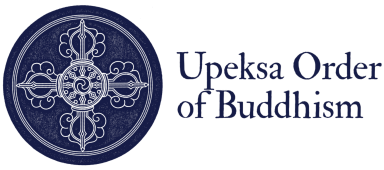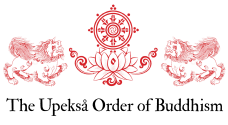The Sangha
Our community of teachers, monks, nuns, masters and more.
In most forms of Buddhism, the Sangha refers to the community of monks and nuns who have renounced in some part, worldly life to pursue the path to enlightenment. The Sangha plays a crucial role in preserving and propagating the teachings of the Buddha, as well as providing support and guidance to practitioners.
Monastic life in Buddhism typically involves strict adherence to a set of rules and practices, including celibacy. However, there are many instances where ordained people may temporarily leave the monastic setting to marry and start families. This often occurs in situations where a person feels a strong desire or responsibility to fulfil familial obligations, such as caring for aging parents or starting a family. Some may choose to rejoin the monastic community, or continue in a non-monastic way.
When a person decides to leave the monastic life to marry, it is seen as a personal choice guided by compassion and a sense of duty rather than a failure to adhere to monastic vows. In some cases, monks may receive permission from their teachers or senior monastic authorities to temporarily disrobe and enter lay life or non-monastic master or teacher. -Here it is important to note that, men, women, trans, intersex and non-binary people are all seen, treated and respected as equal in buddhism, when we use the term master, it is purely as a historical title referring to a learned leader and teacher.
This flexible and pragmatic approach within Buddhist traditions often take towards the challenges and complexities of human life and shapes better teachers.
Buddhist masters and teachers play a vital role in Tibetan Buddhism. These teachers, often referred to as lamas or gurus, are highly respected for their knowledge, wisdom, and realization of the teachings. While they may not live within a monastic community or strictly adhere to monastic vows, they are considered authoritative sources of guidance and inspiration for practitioners.
Non-monastic Buddhist masters often have diverse backgrounds and life experiences, ranging from scholars and intellectuals to yogis and hermits. They may have received formal training within monastic institutions or through direct transmission from their own teachers. Regardless of their background, what distinguishes these masters is their deep understanding of Buddhist philosophy, meditation practices, and their ability to guide students along the spiritual path.
One of the key roles of non-monastic Buddhist masters is to transmit the teachings in a way that is relevant and accessible to contemporary practitioners. They often travel widely, giving teachings, leading retreats, and offering personal guidance to students. Through their skillful means and compassionate guidance, they help individuals navigate the complexities of daily life while staying true to the core principles of Buddhism.
Buddhist masters serve as living examples of the transformative power of the teachings. Their embodiment of qualities such as compassion, wisdom, and equanimity inspires and motivates students to deepen their own practice and realization. Additionally, their personal stories and anecdotes often provide valuable insights and encouragement for overcoming obstacles on the spiritual path. Their importance lies in their ability to connect the timeless wisdom of the Buddha's teachings with the contemporary needs and aspirations of individuals seeking spiritual growth and realization.
The role of a tea master holds a special place within the framework of Buddhist ChaDao, the Way of Tea.
ChaDao encompasses more than just the preparation and consumption of tea; it is a spiritual practice rooted in mindfulness, presence, and interconnectedness.The tea master serves as both a guide and a facilitator in the practice of ChaDao, guiding practitioners through tea ceremonies and tea meditations. Through the art of tea preparation and serving, the tea master invites participants to cultivate a state of calm awareness and appreciation for the present moment.In ChaDao, every aspect of the tea ceremony, from the selection of tea leaves to the brewing process to the serving of tea, is imbued with intention and mindfulness. The tea master not only demonstrates technical proficiency in these rituals but also embodies qualities such as grace, humility, and reverence for nature.
Tea meditations led by the tea master provide participants with an opportunity to cultivate mindfulness and inner peace. By focusing on the sensory experience of drinking tea—the aroma, taste, texture, and temperature—practitioners learn to quiet the mind and deepen their awareness of the present moment.
The teachings of ChaDao emphasise the interconnectedness of all beings and the importance of cultivating harmony and respect for the natural world. Through the practice of tea ceremonies and meditations, participants develop a deeper appreciation for the interconnectedness of life and the profound beauty inherent in everyday moments.
A Tea master within ChaDao reflects the broader Buddhist principle of skilful means—using various methods and practices to help individuals awaken to their true nature. Through the simple act of sharing tea, the tea master offers a profound teaching on mindfulness, presence, and interconnectedness, inviting participants to deepen their spiritual practice and cultivate inner peace and harmony.
We need your consent to load the translations
We use a third-party service to translate the website content that may collect data about your activity. Please review the details and accept the service to view the translations.

